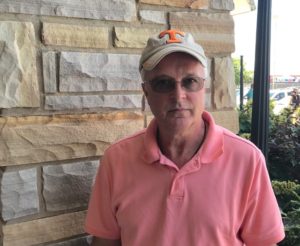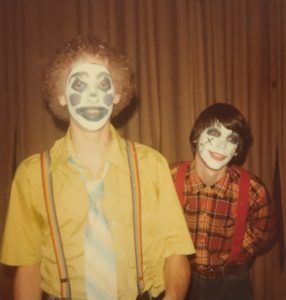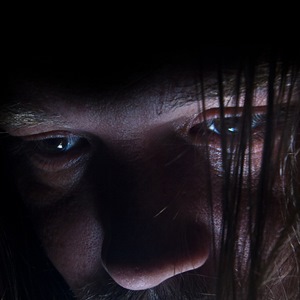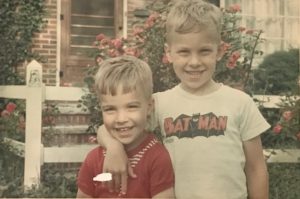
Randy has been my close friend since 1979. We’ve spent many of those years in nearly daily contact. Other than my family, I’ve seen more of Randy over the course of my life than anybody else.
Randy and I were randomly assigned as roommates our freshman year at Mississippi College. We met in our dorm room. Randy was friendly and outgoing, whereas I was shy and hard to get to know. It was a perfect combination.
As soon as we secured telephone service in our dorm room, Randy was on the phone. He would walk in from class and immediately start calling one girl after another for a short chat. Since it was early in our freshman year, most were girls he knew from high school. Looking back, I would imagine most of these girls were flattered to be getting attention from Randy. Of course, they probably didn’t realize that they were one call in a series.
I was almost deathly afraid to put myself out there with girls. Too much of my self-esteem was on the line, and I dreaded being rejected and what I thought that would confirm about me. I didn’t date in high school at all, didn’t go to any dances or to the prom.
But Randy inspired me to get out of my comfort zone. I managed to call two or three girls on a regular basis, girls who I saw as friends rather than crushes. After a few conversations, they would know to expect my calls, so it became a lot easier. I would continue to struggle putting myself on the line with girls. But Randy pushed me to get out of my comfort zone and talk with girls one-on-one, practice I desperately needed.
The only fly in the ointment was that Randy wanted me to put him on the phone during my calls. Pretty soon he was calling my two or three girls in addition to the girls on his list! I got upset (jealous?) and he stopped calling them. Later I found out that one of these girls got upset with me because she was really enjoying Randy’s attention.
Randy introduced me to his high school friend Greg. Greg was then a sophomore at Mississippi College. He had discovered a new game called Dungeons and Dragons, and he got a group of friends together to play. Greg took the role of dungeon master; a role he would be doomed to play for the next three years. I didn’t attend that first session, but it was legendary, with Randy playing the role of a thief who very nearly stole everybody else’s treasure. It got everybody hooked.
Randy invited me to the next game, and it was there that I met my primary group of friends at MC. You can read more about them here.
I had very few friends in college that Randy didn’t introduce me to. At times my life in college was desperately lonely, so I can’t imagine what it would have been like had Randy not included me in his social circles. While I still pined for a girlfriend to validate that I was worthy, I at least felt secure with a group of guy friends. I belonged. That probably wouldn’t have happened without Randy.
Randy was actually pretty aggressive in including me. He would burst into our dorm room and loudly announce, “Let’s go!” I would reply “Where?” He said, “Let’s GO!” I said “Where?” He said “LET’S GO!”
So I went. One evening, I found out the “Where” was to visit our friend Keith in Dallas, six hours away. It was already evening. So Randy and Jim and one other friend I don’t recall now and I drove into the night, surprised Keith with a visit, then drove the rest of the night home. On the way back, we all slept—including Jim (briefly) who was driving the car at the time. This scared the snot out of him and he managed to recruit another of us to drive the rest of the way.
For a few semesters Randy worked at the Naval Surface Warfare Center in Virginia under a co-op program with MC. When we graduated he recruited me to come work there. We stayed at the bachelor civilian quarters on base, then we rented our own apartment off base.
We both got married, Randy to his Cindy and me to my Jamie. We had our weddings on consecutive days so our friends could make one trip for both weddings. Jamie and I stayed in Virginia and Randy and Cindy eventually moved to San Antonio.
In 1989, I took the lead—for once—and invited Randy to something that would change both our lives. I had created a tax software company a few years earlier, and I invited Randy to join our tiny company as Chief Operating Officer, board member, and equity partner.
I was asking Randy to give up a comfortable, steady life where he was concerned with 401(k) contribution matching and raising his credit rating. In its place, I offered uncertainty, risk, adventure, and the opportunity to create something special. He and Cindy had to think about it. He said ‘yes’ shortly thereafter.
Early on, we came to realize that in order to make our electronic tax return filing successful, we needed to offer refund anticipation loans (RALs). H&R Block used to call these “Rapid Refunds.” The bank would loan money to a taxpayer when the tax return was filed, and the taxpayer’s refund would be deposited directly into an account at the bank which would pay off the loan. We would act as the electronic middle-man between the tax preparer, the bank, and the IRS.
So Randy and I got in the car and made a road trip to two big banks: Mellon Bank in Pittsburg and Bank One in Columbus. We were just two guys in a 1978 Toyota Corolla walking in to see senior VPs with little more to offer than a promise to drum up business. It was heady stuff. Amazingly, they were willing to do business with us!
I remember going back to the hotel and sitting in a hot tub with Randy. Our heads were spinning about what was possible. We were full of dreams and possibilities and wondering whether it would all work out as we had planned. It did. We eventually processed billions of dollars of RALs for several major banks.
Randy came on board just prior to Al, another new partner who was a proven marketer. The company grew. And grew. It eventually filed millions of tax returns electronically every year and had hundreds of employees.
Randy, Al, and I would have lunch together most work days. We did all our strategic planning over Chinese food or barbeque or whatever. Amazingly, I only remember us seriously disagreeing twice in over a decade of active management of the company. I consider this to be remarkable.
The three of us were called by some the “Three Amigos” after the movie starring Steve Martin, Chevy Chase, and Martin Short. I’ve been told by more than one former employee that when we were there, the company felt like family. After we left, it was more like a corporation.
As his title indicates, Randy took on much of the duties of operating the company. I never felt comfortable doing that, and because of Randy, I didn’t have to. In fact, I didn’t even have a clear sense of how other people saw me. It was a sign of my own insecurities. So Randy often took on the roles that tended to cause conflict.
Randy invited me to invest in a real estate venture he was starting in Pigeon Forge, TN. My involvement in this venture would once again give Randy an opportunity to change my life.
He built several chalets and was doing well booking them. A guy named Eldon from Texas approached him about locating his personal growth workshops at Randy’s chalets. He promised significant occupancy several times per year.
There was only one catch: Randy would be required to attend Eldon’s seminar so he could understand what it was they were doing. Randy attended. Shortly after, Randy took me out to lunch and told me I HAD to attend this amazing seminar.
It was hard to say no to Randy, so Jamie and I both attended. It changed my life. I started to volunteer as a facilitator so I could pass on what I had received. Although it’s been a long time since Eldon went out of business, I still volunteer at a seminar with virtually the same content located in Portland, 15 years after my first experience in Pigeon Forge.
I haven’t seen Randy much in the last decade or so. We touch base infrequently. It’s strange not to have him in my life on a regular basis. I miss him.
The Randy I’ve known is determined, driven, and creative. This made him a perfect business partner and the guy who would push me out of my comfort zone.
He’s great at analysis. He’s never met a spreadsheet he didn’t like.
He dreamed big dreams and then set out to make them happen. He took big risks for the possibility of a big payout. He continued as an entrepreneur long after we sold the company. Even his wife Cindy has become an entrepreneur, opening three gift shops in Pigeon Forge.
He is gregarious, friendly, and outgoing. He makes friends easily and quickly.
Randy, you’ve been instrumental in improving so many aspects of my life: My friends, my self-concept, my business success, my personal growth journey, my leadership abilities, my comfort around others. Even this impressive list doesn’t do justice to what you’ve meant to me. You are the definition of a best friend. I can only hope to give you as much as you’ve given me.
I love you Randy. I don’t know if I’ve ever said the words before. If not, it’s only because I was too much of a wuss.


